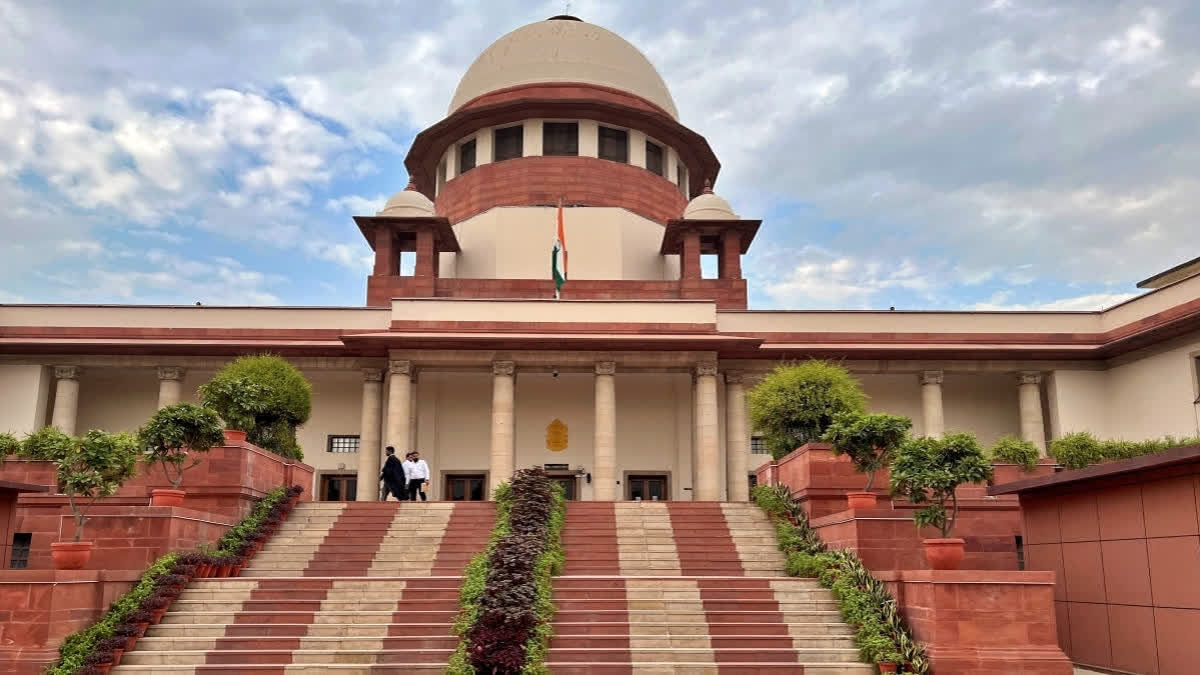New Delhi: The Supreme Court has allowed an appeal by the Director General of Police Tamil Nadu, Mylapore, challenging a Madras High Court order allowing a plea by a man, who was denied recruitment to the constable post.
The police have claimed that the man suppressed the information regarding his involvement in a criminal case, in which he was acquitted, during verification. A bench comprising Justices Abhay S. Oka and Pankaj Mithal said: “In the case at hand, the respondent may be eligible for appointment but since he has not disclosed the complete information with regard to his involvement in a criminal case, wherein he might have been acquitted earlier even before verification, he cannot escape the guilt of suppressing the material information as required by column 15 of the verification roll.”
The apex court stressed that the candidate in the first instance is obliged to give correct information as to his conviction, acquittal or pendency of the criminal case and there should be no suppression or false mention of required information. “Secondly, even if a truthful declaration is made by him, he would not be entitled to appointment as a matter of right and that the employer still has the right to consider his antecedents," said the bench.
The bench said respondent (J. Raghunees) has certainly not disclosed the correct information and his honourable acquittal or acquittal by giving the benefit of the doubt is not material and relevant but what is relevant is the full and complete disclosure of the information regarding his involvement in a criminal case which has been suppressed by him.
The Tamil Nadu police moved the apex court challenging the high court’s division bench order, passed on April 24, 2009, allowing the plea filed by J. Raghunees. The division bench reversed the order dismissing Raghunees' plea. The order dismissing the writ petition of the respondent was set aside in the writ appeal by the division bench and the writ petition was ultimately allowed.
Raghunees had moved the high court against the authorities' order dated November 9, 2004, that he was not entitled to an appointment as he was guilty of suppressing material facts by not stating his involvement in the criminal case while filling up column 15 of the attestation form. Raghuness was selected for the post of Grade-II constable after he qualified the written test. Upon his selection, his antecedents were inquired into and in that connection an exercise for verification of his character and other antecedents was undertaken.
In a judgment delivered on October 20, the apex court said: “The respondent was involved in a criminal case but had been acquitted therefrom. Thus, it cannot be said that the respondent was not concerned with any criminal case. Therefore, he ought to have disclosed the correct position that he was involved in a criminal case but had been acquitted”.
It noted that the respondent instead of giving the full and complete information simply stated ‘no’ as if he was never involved in any criminal case and this answer to the question posed in column 15 of the verification roll undoubtedly conveys the wrong information and amounts to the suppression of the correct information.
Setting aside the high court order, the apex court said: “Keeping in mind that the respondent was a candidate for recruitment to a disciplined force, the non-disclosure of the information of his involvement in the criminal case and subsequent acquittal therefrom cast a serious doubt upon his character and the antecedents which is sufficient enough to disentitle him from employment”.



